
The Remote Wonders of Denkalia Region
The Denkalia Region in Eritrea is a hidden gem for those who seek adventure and untouched natural beauty. This remote area is part of the Danakil Depression, one of the hottest and lowest places on Earth. The landscape is otherworldly, with colorful salt flats, active volcanoes, and vast deserts. It's a place where you can truly disconnect from the modern world and immerse yourself in nature's raw power. Denkalia's diverse geography offers unique experiences for travelers. You can witness the Erta Ale volcano, known for its persistent lava lake, and explore the surreal salt flats of Lake Assal. The region is also rich in geothermal activity, with hot springs and bubbling mud pools. These natural wonders create an unforgettable backdrop for adventure seekers and photographers alike. While the Denkalia Region is remote and challenging to access, the rewards are immense. The local Afar people are known for their hospitality and can provide valuable insights into the region's culture and traditions. Visiting Denkalia is not just a journey to a unique landscape but also an opportunity to connect with one of the world's most isolated communities.
Local tips in Denkalia Region
- Visit during the cooler months from November to February to avoid extreme heat.
- Hire a local guide for the best experience and to navigate the challenging terrain safely.
- Bring plenty of water, sunscreen, and protective clothing for the harsh desert conditions.
- Ensure you have a reliable 4x4 vehicle, as roads can be difficult to traverse.
- Respect local customs and traditions when interacting with the Afar people.
The Remote Wonders of Denkalia Region
The Denkalia Region in Eritrea is a hidden gem for those who seek adventure and untouched natural beauty. This remote area is part of the Danakil Depression, one of the hottest and lowest places on Earth. The landscape is otherworldly, with colorful salt flats, active volcanoes, and vast deserts. It's a place where you can truly disconnect from the modern world and immerse yourself in nature's raw power. Denkalia's diverse geography offers unique experiences for travelers. You can witness the Erta Ale volcano, known for its persistent lava lake, and explore the surreal salt flats of Lake Assal. The region is also rich in geothermal activity, with hot springs and bubbling mud pools. These natural wonders create an unforgettable backdrop for adventure seekers and photographers alike. While the Denkalia Region is remote and challenging to access, the rewards are immense. The local Afar people are known for their hospitality and can provide valuable insights into the region's culture and traditions. Visiting Denkalia is not just a journey to a unique landscape but also an opportunity to connect with one of the world's most isolated communities.
When is the best time to go to Denkalia Region?
Iconic landmarks you can’t miss
ኣስመራ ካቴድራል | Cathedral Our Lady of the Rosary
Explore the architectural beauty and cultural significance of Cathedral Our Lady of the Rosary in Asmara, a must-visit landmark in Eritrea.
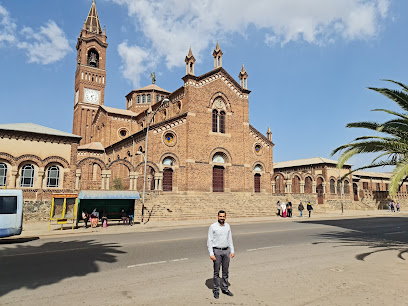
Khulafa al-Rashidun Mosque - ጃምዕ ኹለፋእ ኣልራሺዲን
Discover the architectural beauty and cultural significance of Khulafa al-Rashidun Mosque, a must-visit landmark in Asmara, Eritrea.
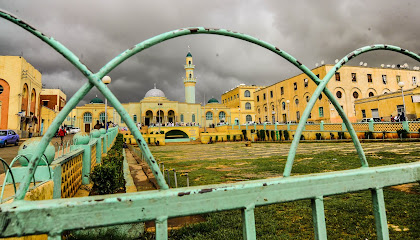
Dahlak Marine National Park
Discover the breathtaking beauty and rich biodiversity of Dahlak Marine National Park, an unspoiled paradise in Eritrea's coastal waters.
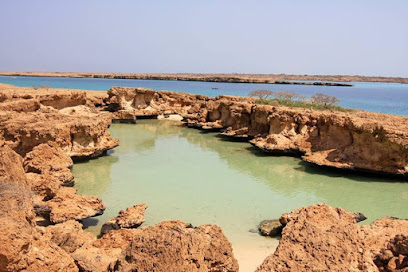
National Museum of Eritrea
Immerse yourself in Eritrea's rich history at the National Museum of Eritrea, where culture, heritage, and storytelling come alive.
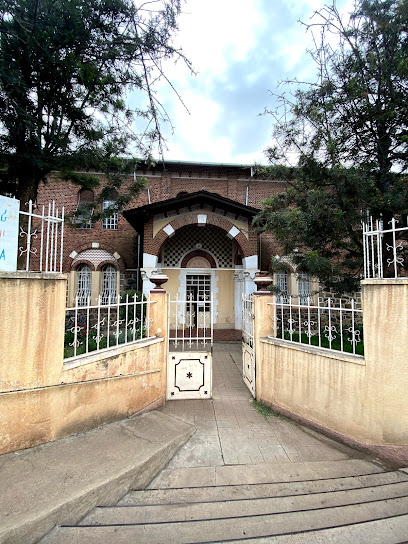
Eritrea
Experience luxury and natural beauty at Eritrea, one of the stunning islands in The World Islands, Dubai, where relaxation meets adventure.
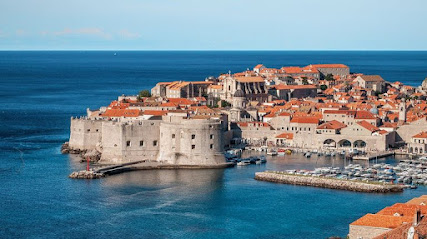
Eritrea Visit
Discover the wonders of Eritrea with Eritrea Visit, your trusted travel agency offering exceptional tours and unforgettable experiences in the heart of Africa.
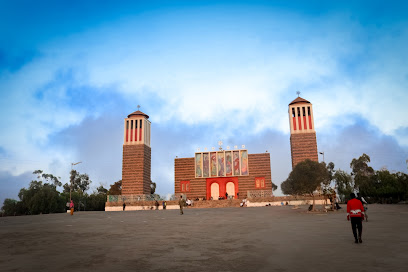
Sheikh Hanafi Mosque
Explore the serene beauty of Sheikh Hanafi Mosque in Mitsiwa, Eritrea—a captivating blend of architecture and cultural heritage.
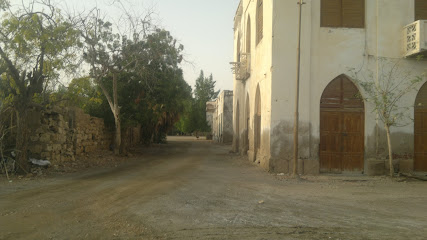
Asmara Synagogue
Explore the Asmara Synagogue, a historical site showcasing Eritrea's rich Jewish heritage and community spirit in the heart of the capital.
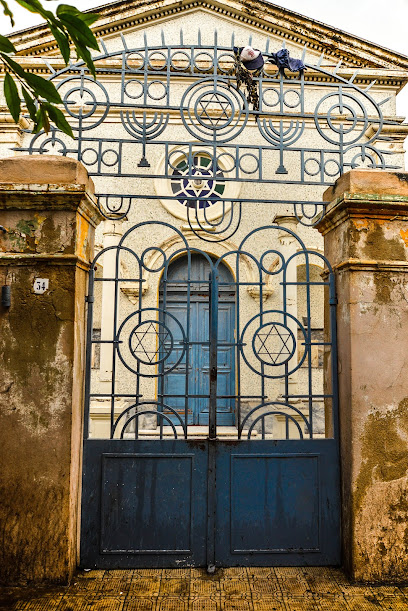
Adulis Travel
Explore Eritrea's rich heritage and breathtaking landscapes with Adulis Travel, your trusted tour agency in Asmara.
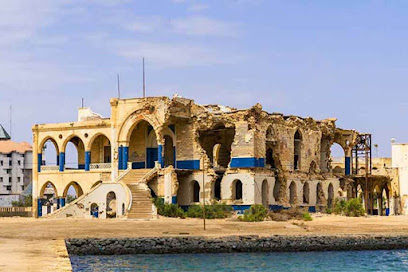
Debre Bizen
Experience tranquility and rich history at Debre Bizen Monastery in Nefasit, Eritrea, a captivating destination for spiritual seekers and nature lovers alike.
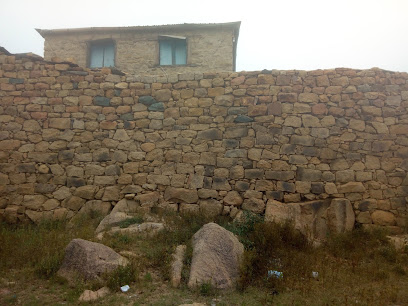
Asmara Italian Cemetery
Explore the serene beauty and historical significance of the Asmara Italian Cemetery, a peaceful tribute to Eritrea's colonial heritage.
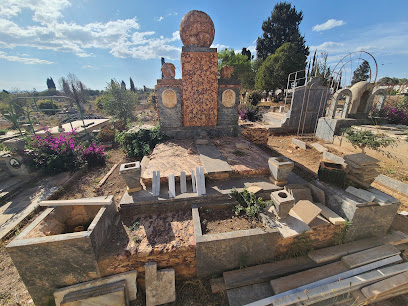
ዳ ባእለ እግዚኣብሔር ቤተ-ክርስትያን
Explore the stunning Orthodox Church in Asmara, a cultural landmark of Eritrea, showcasing exquisite architecture and rich historical significance.
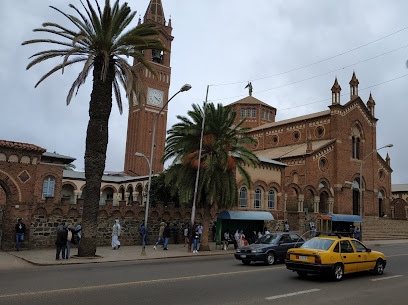
Barentu Mosque
Discover the serene beauty and cultural significance of Barentu Mosque, a must-visit destination in Eritrea's spiritual landscape.

ጻዕዳ መረቅ
Explore Senafe, Eritrea, where ancient history meets breathtaking landscapes, offering a unique travel experience filled with culture and adventure.

መቓብር - ጸጸራት
Discover the serene Cemetery of Adi Tekelezan, a place of reflection and respect for Eritrea's rich cultural history.

Unmissable attractions to see
Danakil Desert
Discover the extraordinary landscapes and unique geothermal wonders of the Danakil Desert, one of Earth's most extreme and beautiful destinations.
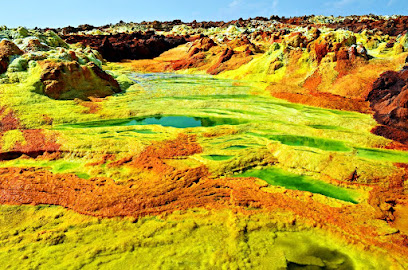
Khulafa al-Rashidun Mosque - ጃምዕ ኹለፋእ ኣልራሺዲን
Discover the architectural splendor and spiritual serenity of Khulafa al-Rashidun Mosque, a must-see landmark in Asmara, Eritrea.
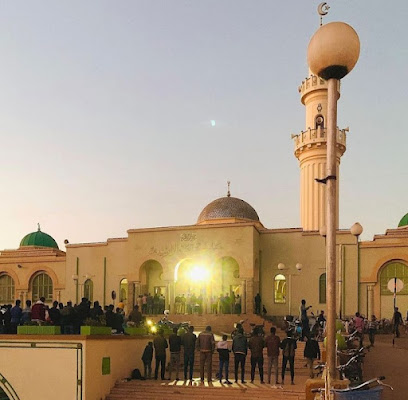
Mariam Debresina Monastery ገዳም ማርያም ደብረሲና
Explore the rich spiritual heritage of Eritrea at Mariam Debresina Monastery, a peaceful retreat offering stunning views and cultural insights.
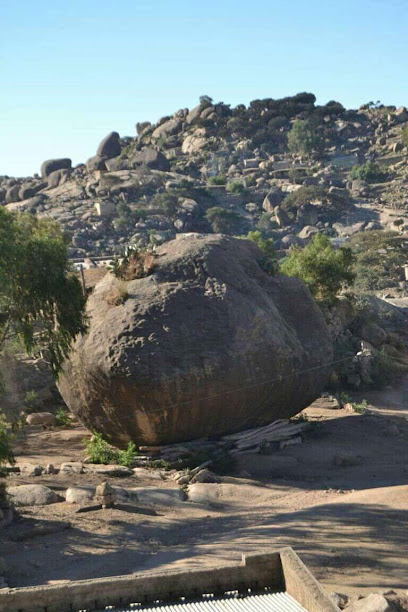
Sheikh Hanafi Mosque
Discover the breathtaking beauty and spiritual serenity of Sheikh Hanafi Mosque in Mitsiwa, a true gem of Eritrean architecture and culture.
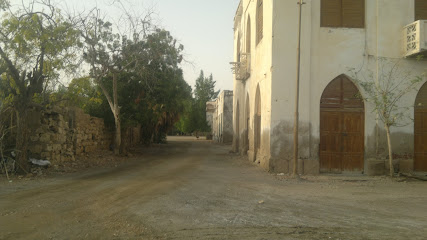
Asmara Italian Cemetery
Explore the serene beauty of Asmara's Italian Cemetery, a historical gem showcasing Italian colonial history and exquisite artistry in tomb design.
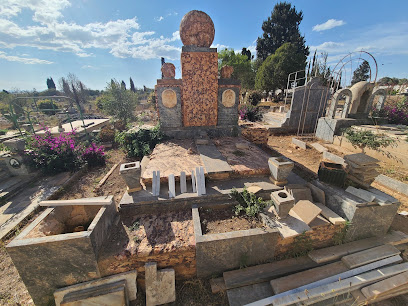
Essential places to dine
Ghibabo Restaurant And Pizzeria
Experience the best of Eritrean hospitality at Ghibabo Restaurant And Pizzeria in Asmara, where authentic flavors meet vibrant ambiance.
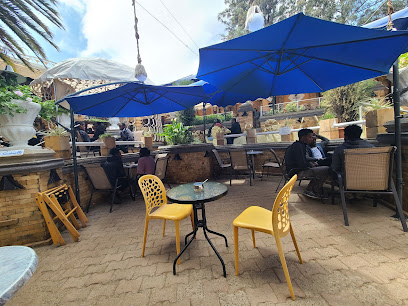
Golden Fork Fast Food
Experience authentic Eritrean flavors at Golden Fork Fast Food in Asmara - a culinary delight for every traveler.

Al Sicomoro Restaurant
Discover authentic Italian flavors at Al Sicomoro Restaurant in Asmara—where tradition meets taste in an inviting setting.
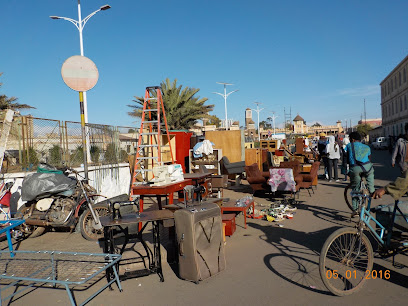
The Roof Garden
Discover authentic Eritrean cuisine with breathtaking views at The Roof Garden in Asmara - a culinary gem for every traveler.
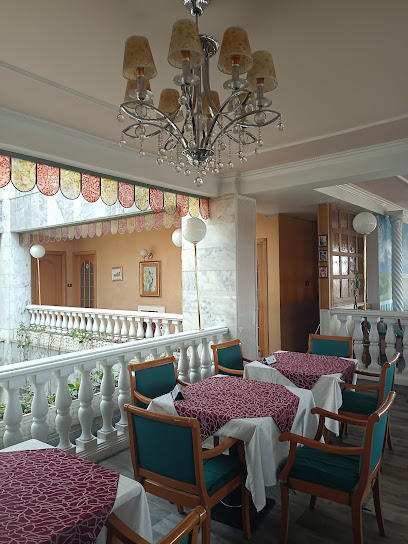
Bar Pasticceria Vittoria
Experience authentic Eritrean pastries and rich coffee at Bar Pasticceria Vittoria in Asmara – a delightful café perfect for every traveler.
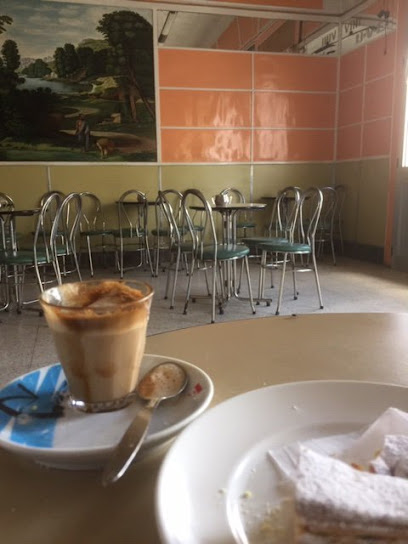
Arobana Restaurant
Experience authentic Eritrean cuisine at Arobana Restaurant in Asmara – a culinary journey through local flavors.
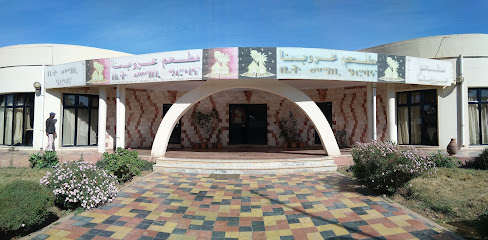
Banuna Bar & Restaurant
Discover family-friendly dining at Banuna Bar & Restaurant in Mitsiwa - where traditional Eritrean flavors meet a warm atmosphere.
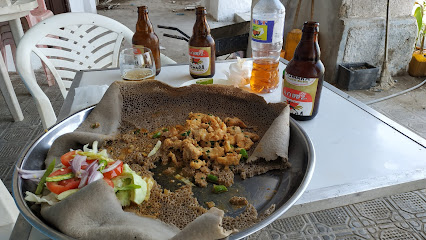
Castello Bar And Restaurant
Experience authentic Eritrean cuisine at Castello Bar And Restaurant in Asmara - where tradition meets flavor in a cozy atmosphere.
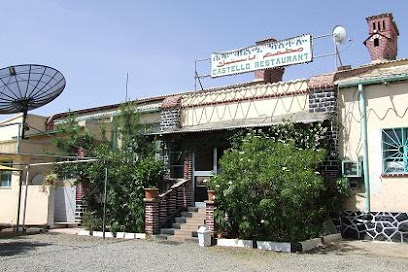
Rendez-Vous Restaurant
Experience authentic Eritrean cuisine at Rendez-Vous Restaurant in Asmara – where flavor meets tradition.
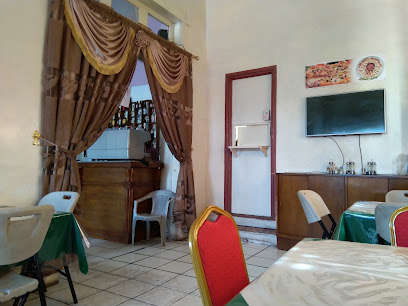
MT Restaurant
Experience the rich flavors of Eritrean cuisine at MT Restaurant in Asmara - where tradition meets taste in every dish.

Abeba Restaurant
Discover the rich flavors of Eritrea at Abeba Restaurant in Asmara – where every dish tells a story.

ሚላኖ Milano Restaurant
Experience the best of Italian flavors at Milano Restaurant in Asmara - where every meal is a celebration of culinary excellence.

Hebron Bar And Restaurant
Experience authentic Eritrean cuisine at Hebron Bar and Restaurant in Asmara—where local flavors meet warm hospitality.
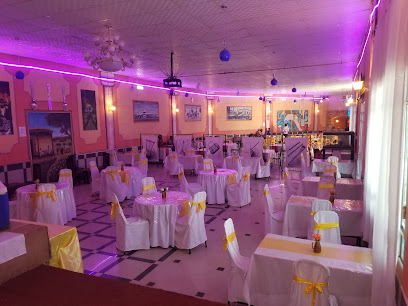
Qatania restaurant
Experience authentic Eritrean cuisine at Qatania Restaurant in Asmara—where every meal is a celebration of flavor and tradition.
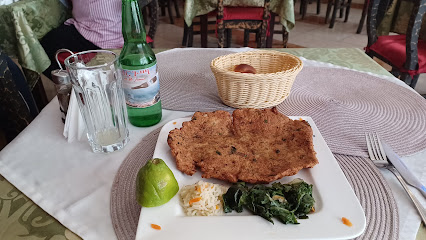
Sallam Restaurant
Discover authentic Eritrean seafood at Sallam Restaurant in Mitsiwa, where fresh catches meet traditional flavors for an unforgettable dining experience.
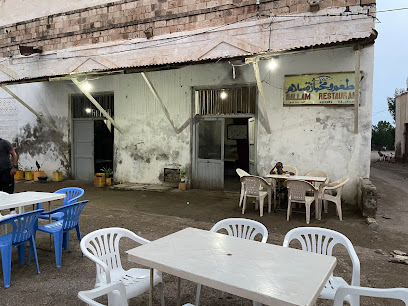
Markets, malls and hidden boutiques
Khulafa al-Rashidun Mosque - ጃምዕ ኹለፋእ ኣልራሺዲን
Discover the Khulafa al-Rashidun Mosque, a stunning architectural gem in Asmara, embodying Eritrea's rich Islamic heritage and culture.
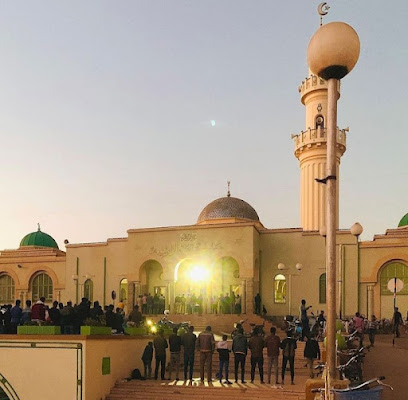
Asmara International Airport
Asmara International Airport: Your gateway to the captivating landscapes and rich culture of Eritrea awaits.
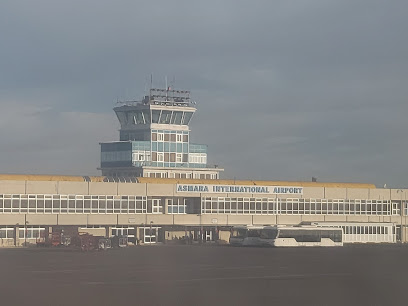
Dahlak Marine National Park
Explore the pristine underwater world and breathtaking landscapes of Dahlak Marine National Park in Eritrea, a paradise for nature lovers and adventurers.
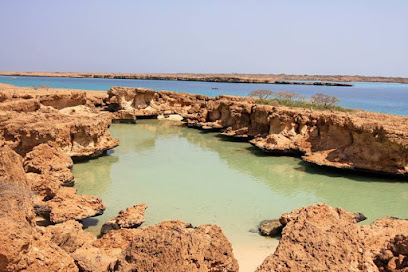
Assab Airport
Discover the beauty of Eritrea starting from Assab Airport, your gateway to coastal adventures and rich cultural experiences.

Eritrea Visit
Discover the beauty of Eritrea with personalized tours from Eritrea Visit, your premier travel agency in Asmara, showcasing culture, history, and stunning landscapes.
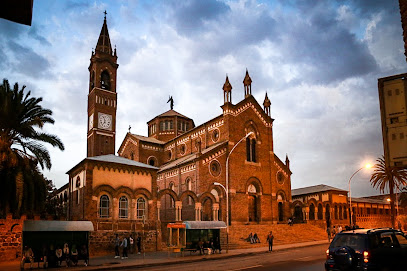
Sheikh Hanafi Mosque
Explore the beauty and tranquility of Sheikh Hanafi Mosque in Mitsiwa, a stunning example of Eritrean architecture and culture.
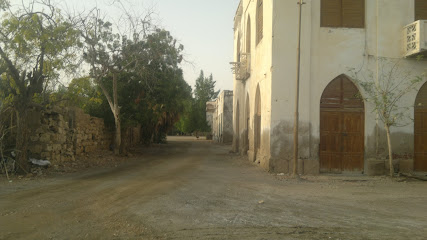
Asmara Central Hotel
Discover the charm of Asmara at Asmara Central Hotel, your cozy retreat in Eritrea's vibrant capital.

Awghet Bookshop
Explore the rich literary legacy of Awghet Bookshop in Asmara, a charming destination for book lovers and cultural enthusiasts.
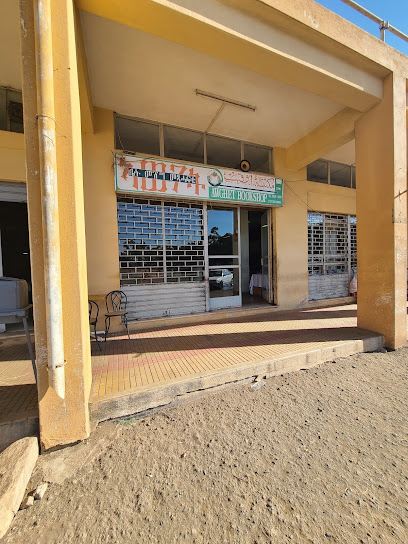
Essential bars & hidden hideouts
Ghibabo Restaurant And Pizzeria
Experience the best of Eritrean and Italian cuisine at Ghibabo Restaurant And Pizzeria in Asmara, where every meal is a celebration of flavor.
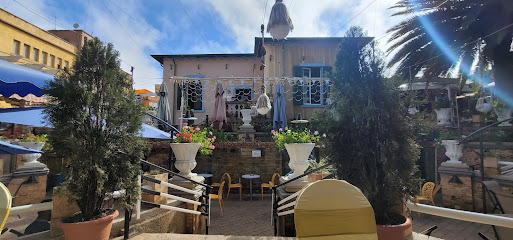
The Roof Garden
Discover the flavors of Eritrea at The Roof Garden, a scenic restaurant in Asmara offering exquisite local cuisine and stunning views.
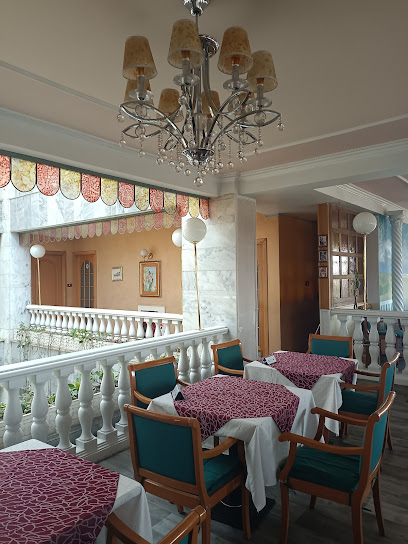
Bar Pasticceria Vittoria
Experience the rich flavors of Eritrea at Bar Pasticceria Vittoria, a charming cafe in Asmara known for its exceptional coffee and delightful pastries.
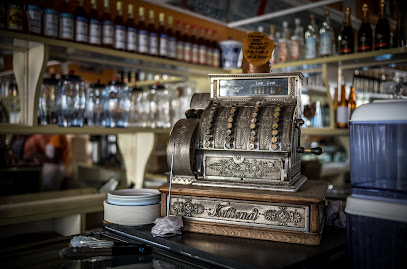
Bar Zilli
Experience the vibrant flavors of Eritrea at Bar Zilli, a unique grill and bar offering a delightful blend of local and Italian cuisine in Asmara.
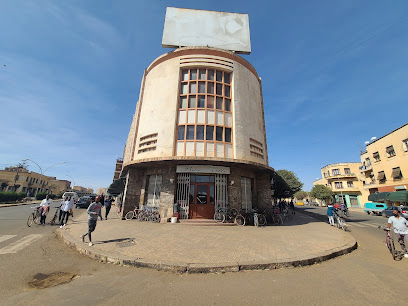
Nice Bar and Restaurant
Experience fast food with a local twist at Nice Bar and Restaurant in Asmara, where flavor meets culture in a vibrant dining atmosphere.

Castello Bar And Restaurant
Experience authentic Eritrean cuisine and warm hospitality at Castello Bar And Restaurant - a culinary gem in Asmara.
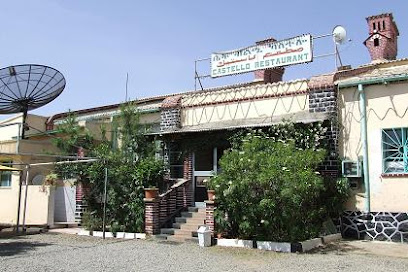
Bar Hiwnet
Discover the authentic flavors of Eritrea at Bar Hiwnet, a culinary treasure in Asmara offering delectable local dishes in a warm atmosphere.

Bar Zara
Experience the vibrant nightlife of Asmara at Bar Zara, where delightful drinks and local culture blend seamlessly.

ሚላኖ Milano Restaurant
Discover the flavors of Italy at ሚላኖ Milano Restaurant in Asmara, an authentic dining experience with a touch of Italian charm.

Hebron Bar And Restaurant
Discover the culinary delights of Eritrea at Hebron Bar and Restaurant, where tradition meets flavor in a welcoming environment.
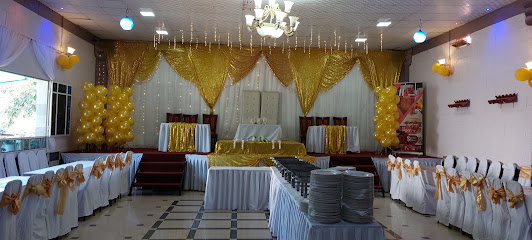
Sallam Restaurant
Discover the best seafood dining experience in Mitsiwa, Eritrea, at Sallam Restaurant, where fresh catches and local flavors come together.
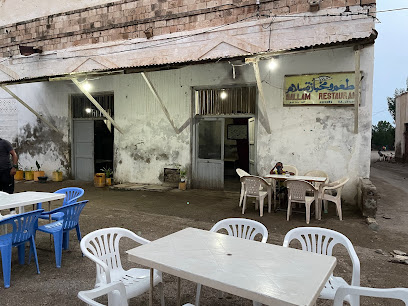
Bar KitKat
Discover the vibrant atmosphere of Bar KitKat in Asmara, where local charm meets refreshing beverages for an unforgettable experience.

Bar Tre Stelle
Experience the charm of Eritrean culture at Bar Tre Stelle, a cozy bar in Asmara offering local drinks and a friendly atmosphere.

Bar Gebray ባር ገብራይ
Experience the vibrant nightlife and authentic Eritrean culture at Bar Gebray in Asmara, a perfect spot for socializing and relaxation.

Local Phrases about Denkalia Region
-
- Helloሰላም
[sälam] - Goodbyeሰላም ልዑል
[sälam l'ul] - Yesእወ
[ew] - Noየለን
[yelän] - Please/You're welcomeእንተይ/እንተይን
['entäy/'entäyn] - Thank youእንተይን
['entäyn] - Excuse me/Sorryዓወት
['awät] - How are you?እንዴትን አንተው?
['ändätna 'antäw?] - Fine. And you?እንዴትን አንተው?
['ändätna 'antäw?] - Do you speak English?ኣንባብልን እንተይ?
[änäbablän 'entäy?] - I don't understandከምኡውን ኣልበልኩን
[käm'uwän albälkun]
- Helloሰላም
-
- I'd like to see the menu, pleaseኣንብቢለይ ሓፍትካዮ እንተይ
[änbibäly hafṭayo 'entäy] - I don't eat meatብዛዕባ ኣብዚሓለይ
[bza'ba abzihäly] - Cheers!ኣጋንንና!
[aganna] - I would like to pay, pleaseኣንብቢለይ ስራሕይካ እንተይ
[änbibäly sräḥyäyo 'entäy]
- I'd like to see the menu, pleaseኣንብቢለይ ሓፍትካዮ እንተይ
-
- Help!ሞያ!
[moya!] - Go away!እዘይ!
['ezäy!] - Call the Police!ናይ ፖሊስ ኣይና!
[nay polis 'ayna!] - Call a doctor!ናይ ሰዋሽ ኣይና!
[nay sawasha 'ayna!] - I'm lostኣብዚ ግብሪ እንተድኻን
[abzi gubri 'entäd'kan] - I'm illኣብዚ ጣዕሚ እንተድኻን
[abzi tämi 'entäd'kan]
- Help!ሞያ!
-
- I'd like to buy...ኣንብቢለይ ሕጂ...
[änbibäly ḥäj] - I'm just lookingኣንብቢለይ ተኽሊሉ
[änbibäly t'khililu] - How much is it?ስምኦ ኣብዚ?
[smo abzi?] - That's too expensiveእቲ ሓርነት ከተክላብ
['eti ḥarnät kät'kalab] - Can you lower the price?ከመይሉ ስምኦ ወልቃል?
[kam'yälu smo wälqal]
- I'd like to buy...ኣንብቢለይ ሕጂ...
-
- What time is it?ሰእስተ ሰዓር?
[se'ästä se'ar] - It's one o'clockኣንብቢለይ ቀረ፡እዩ
[änbibäly k'är:eyu] - Half past (10)ርሑስ ወራዮ፡እዩ
[rhus warayo:eyu] - Morningሰላም ቀዳማይ
[sälam qadamay] - Afternoonሰላም ማቕራብ
[sälam maq'arab] - Eveningሰላም ሓቂ
[sälam ḥäqi] - Yesterdayትቕደም
[t'qädäm] - Todayዓርቢ
['ärbi] - Tomorrowግንቦት
[gänbot] - 1ኣንድ
[and] - 2ሁለት
[hulet] - 3ሶስት
[sost] - 4ኣራት
[arat] - 5እስከ
[eske] - 6ሓምለ
[hamle] - 7ስማን
[smän] - 8ስምን
[smen] - 9በታን
[batän] - 10ንኽራ
[näkhra]
- What time is it?ሰእስተ ሰዓር?
-
- Where's a/the...?ብዝሒ እቲ...?
[bzih 'eti...?] - What's the address?ኣብዚ ኣዕርጋ?
[abzi a'erga?] - Can you show me (on the map)?ከመይሉ ኣብዚ (ብዝሒ)?
[kam'yälu abzi (bzih)?] - When's the next (bus)?ምንቃብዝ ስራሕይ?
[mänkabzi sräḥyä?] - A ticket (to ....)ትኪብት (እንብቢለይ....)
[tikibt ('änbibäly....)]
- Where's a/the...?ብዝሒ እቲ...?
History of Denkalia Region
-
The Denkalia Region, also known as the Danakil Depression, is one of the hottest and most inhospitable places on Earth. Despite its harsh environment, it has been home to the Afar people for thousands of years. The Afar are a nomadic ethnic group that has adapted to the challenging conditions of the region. Their history is deeply intertwined with the land, and they have maintained a unique cultural identity through their language, customs, and traditions.
-
Denkalia's strategic position along the Red Sea made it a crucial part of the ancient trade routes. It served as a hub for the exchange of goods such as incense, spices, and precious stones between Africa, the Middle East, and Asia. Archaeological evidence suggests that the region was part of the Aksumite Empire, which thrived from the 1st to the 7th century AD, and played a significant role in the trade network of the ancient world.
-
In the late 19th and early 20th centuries, Eritrea, including the Denkalia Region, came under Italian colonial rule. The Italians were drawn to the strategic location of the Red Sea coast and sought to exploit its resources. This period saw the construction of infrastructure such as roads and ports, which facilitated trade and movement within the region. However, the colonial period also brought about significant social and economic changes that impacted the traditional way of life of the Afar people.
-
Following World War II, Eritrea was placed under British administration before being federated with Ethiopia in 1952. This led to decades of conflict and struggle for independence. The Denkalia Region, with its harsh landscape, became a strategic stronghold for Eritrean liberation movements. The Eritrean People's Liberation Front (EPLF) utilized the rugged terrain to carry out guerrilla warfare against Ethiopian forces. Eritrea finally achieved independence in 1993, and the Denkalia Region played a vital role in this historic struggle.
-
The Denkalia Region is renowned for its extraordinary geological features. The Danakil Depression, part of the East African Rift System, is one of the lowest points on Earth. It is home to active volcanoes, salt flats, and colorful hydrothermal fields. The Erta Ale volcano, known for its persistent lava lake, attracts geologists and adventurous travelers from around the world. The unique landscape of Denkalia continues to captivate those who visit and study its natural wonders.
-
The Afar people of the Denkalia Region have a rich cultural heritage that includes traditional music, dance, and storytelling. They are known for their intricate beadwork, distinctive clothing, and unique culinary practices. The region's harsh environment has fostered a strong sense of community and resilience among the Afar. Their way of life is closely tied to the land and their livestock, which are central to their economy and social structure. Festivals and rituals play a significant role in preserving their cultural identity and passing down traditions to future generations.
Denkalia Region Essentials
-
The Denkalia Region, also known as the Danakil Depression, is a remote area in Eritrea. The closest major airport is Asmara International Airport (ASM) in Asmara, the capital of Eritrea. From Asmara, you can take a domestic flight to Assab or Massawa, both of which are closer to the Denkalia Region. Alternatively, you can hire a private vehicle or join a guided tour that includes transportation from Asmara. The journey by road can be challenging due to the rugged terrain, so it is advisable to travel with experienced drivers.
-
Transportation within the Denkalia Region is limited and often requires a 4x4 vehicle due to the harsh and rugged terrain. Public transport options are scarce, so it is recommended to arrange private transportation or join guided tours. Local guides are invaluable, as they are familiar with the area and can navigate the difficult routes. Be prepared for long drives and ensure your vehicle is well-maintained and stocked with necessary supplies such as water, food, and spare tires.
-
The official currency in Eritrea is the Eritrean Nakfa (ERN). Credit cards are rarely accepted in the Denkalia Region, so it is essential to carry enough cash for your entire trip. ATMs are not available in remote areas, so withdraw sufficient funds in Asmara or other major cities before traveling to Denkalia. It is also advisable to carry small denominations, as change may not always be available.
-
The Denkalia Region is generally safe for tourists, but it is important to take standard precautions. Avoid traveling alone and always stay with your group or guide. The region's harsh environment can pose risks, so be prepared for extreme heat and dehydration. There are no specific high-crime areas targeting tourists, but it is always best to stay vigilant and aware of your surroundings. Ensure you have adequate travel insurance that covers emergencies, including medical evacuation.
-
In case of emergency, contact local authorities or your guide immediately. The nearest medical facilities are in Assab and Massawa, but they may have limited resources. For serious medical emergencies, evacuation to Asmara or neighboring countries may be necessary. It is crucial to have comprehensive travel insurance that covers medical emergencies and evacuation. Carry a first aid kit and familiarize yourself with basic first aid procedures. Emergency contact numbers for police and medical assistance should be saved on your phone.
-
Fashion: Do dress modestly to respect local customs. Lightweight, long-sleeved clothing is recommended to protect against the sun and insects. Religion: Do show respect for local religious practices and avoid interrupting any ceremonies or prayer times. Public Transport: Do be patient and courteous if you encounter local transport options. Don’t expect modern amenities. Greetings: Do greet locals with a polite nod or a handshake. Learn a few basic phrases in Tigrinya or Afar to show respect. Eating & Drinking: Do try local dishes and accept food offerings graciously. Don’t drink tap water; always use bottled or purified water.
-
To experience Denkalia Region like a local, engage with the Afar people and learn about their nomadic lifestyle. Visit local markets where you can buy traditional handicrafts and goods. Respect local customs and ask for permission before taking photographs of people or their property. Explore the unique landscapes, including the salt flats, volcanic craters, and hot springs. A guided tour can provide deeper insights into the region's geology and history. Be prepared for the extreme climate by carrying ample water and wearing appropriate clothing.
Trending Landmarks in Denkalia Region
-
ኣስመራ ካቴድራል | Cathedral Our Lady of the Rosary
-
Khulafa al-Rashidun Mosque - ጃምዕ ኹለፋእ ኣልራሺዲን
-
Dahlak Marine National Park
-
National Museum of Eritrea
-
Eritrea
-
Eritrea Visit
-
Sheikh Hanafi Mosque
-
Asmara Synagogue
-
Adulis Travel
-
Debre Bizen
-
Asmara Italian Cemetery
-
ዳ ባእለ እግዚኣብሔር ቤተ-ክርስትያን
-
Barentu Mosque
-
ጻዕዳ መረቅ
-
መቓብር - ጸጸራት
Nearby Cities to Denkalia Region
-
Things To Do in Obock
-
Things To Do in Mekele
-
Things To Do in Arta
-
Things To Do in Djibouti City
-
Things To Do in Ibb
-
Things To Do in Dikhil
-
Things To Do in Loyada
-
Things To Do in Ali Sabieh
-
Things To Do in Adi Keyh
-
Things To Do in Dhamar
-
Things To Do in Axum
-
Things To Do in Lalibela
-
Things To Do in Adi Quala
-
Things To Do in Sana'a
-
Things To Do in Dekemhare







